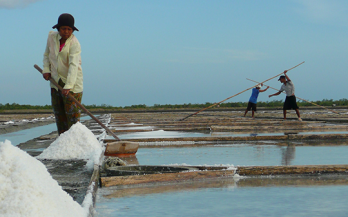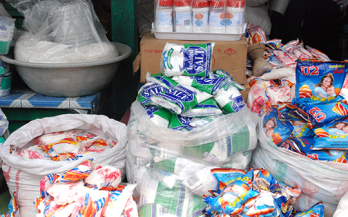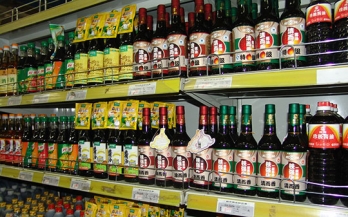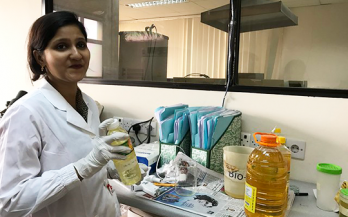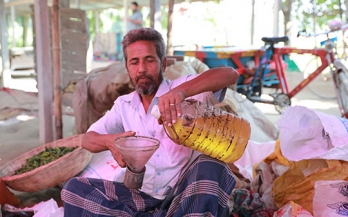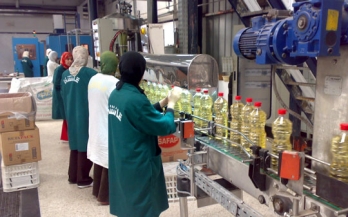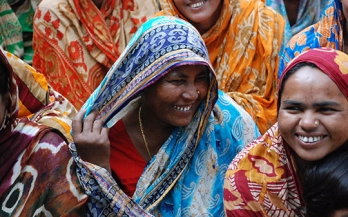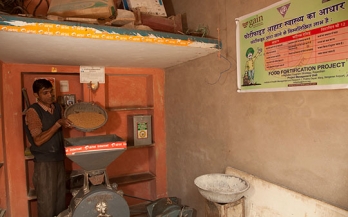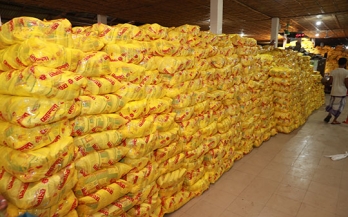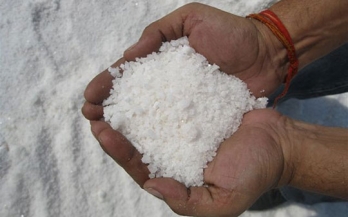- 21/04/2018
Single and multiple variable regression analyses were conducted using data from stratified, cluster sample design, iodine surveys in India, Ghana, and Senegal to identify factors associated with urinary iodine concentration among women of reproductive age at the national and sub-national level.
- 19/04/2018
Regression analyses of data from stratified, cluster sample, household iodine surveys in Bangladesh, India, Ghana and Senegal were conducted to identify factors associated with household access to adequately iodised salt.
- 01/06/2013
The objective of this study was to assess a new portable device for the quantitative measurement of iron content of fortified sauces that could be used to control fortification levels.
- 07/01/2013
The objective of this study was to validate a newly developed device that quantitatively measures the content of retinyl palmitate in refined palm oil, is simple to use, and yields immediate results for fortification of vitamin A in the oil industry.
- 03/02/2014
Fortification of vegetable oils is a strategy implemented worldwide to prevent Vitamin A deficiency. The objective of this study was to assess vitamin A content in the oil industry.
- 11/11/2014
Unbranded palm cooking oil has been fortified for several years and can be found in the market with different oxidation levels. This study aimed to investigate the stability and shelf life of unbranded, bulk, vitamin A-fortified palm oils with the most commonly observed oxidation levels in Indonesia.
- 16/02/2018
In this paper we review the evidence basis for prevention of folic acid–sensitive neural tube defects through public health interventions in women of reproductive age, the proven vehicles for delivery of folic acid, and what is needed to effectively scale these, and provide a snapshot of potential innovations that require future research.
- 07/07/2014
This study was conducted to determine the operational performance, economic sustainability and social impact of a decentralised production model for India’s Supplementary Nutrition Program, in which women groups run small-scale industrialised units.
- 15/12/2012
The aim of this study was to review experience of the use of iodized salt in the food industry globally, and analyze the market context in Bangladesh and Pakistan to test whether this experience may be applicable to inform improved national universal salt iodization programming in developing countries.
- 11/05/2016
Rapid test kits (RTK) have been included in household surveys to test the iodine content in salt. The aim of the current paper was to examine the performance of RKT under field conditions and to recommend their most appropriate use in household surveys.
